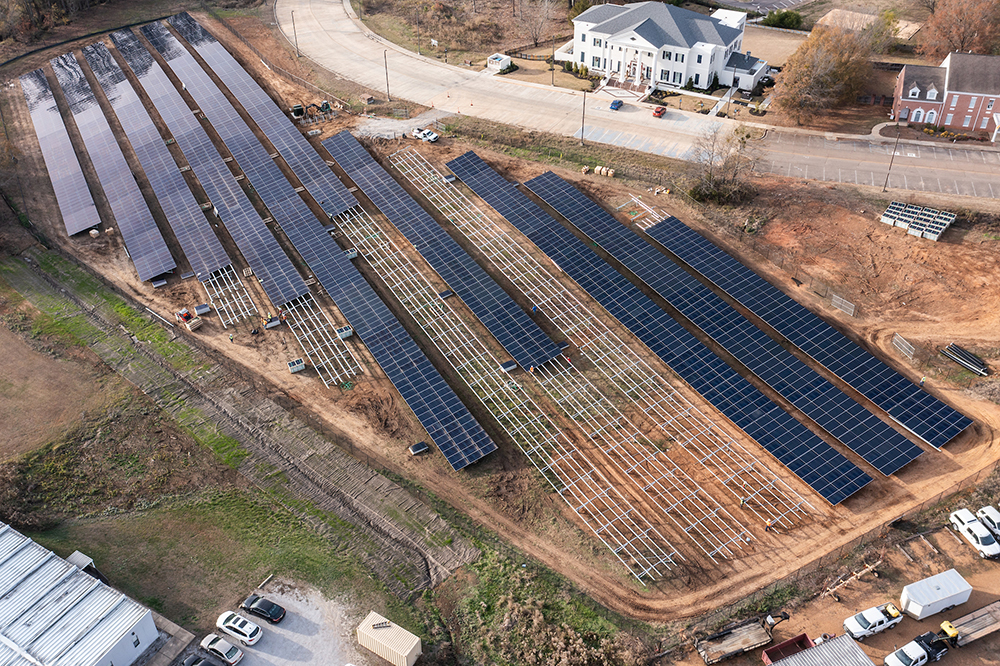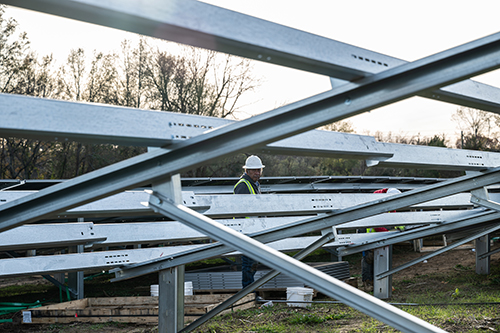Mississippi State installs SEC’s largest on-campus solar facility

STARKVILLE, Miss.—The largest on-campus solar facility in the Southeastern Conference is now “energizing” Mississippi State as part of a 30-year renewable energy efficiency project.

The 3,420 solar panel installation will produce about 2.4 million kilowatt hours of energy annually, creating 2,400 average Renewable Energy Credits, or RECs, and saving—when connected with LED and other retrofit projects—$885,000 per year—plus an additional savings of $265,000 via a one-time rebate incentive from Tennessee Valley Authority.
“We’re taking innovative action now to generate renewable, sustainable power right here on campus. This solar structure is a visible symbol of Mississippi State’s commitment to reach our clean energy goals,” said Saunders Ramsey, executive director of MSU’s Campus Services, of the four-acre field between R.L. Jones Circle and Blackjack Road. “It’s an exciting time and a mission that the entire campus community can champion.”
“Clean energy development and production is the primary method by which campus aims to realize it’s 30-year plan that began in 2012. Clean energy generation accounts for 45% of the total campus carbon reduction goal, with the second highest category—lighting and equipment retrofits—accounting for 20% of the goal. This combination will bring the university a huge increase in energy savings and make significant strides in the plan’s two most critical emission reduction areas,” Ramsey said.
Upgrades and solar modules together will help MSU benefit from a 7,548 metric ton annual carbon reduction and save a total of 10,784,865 kilowatt hours of energy per year.
University campuses across the U.S. are uniquely positioned to engage in solar energy projects for more reasons than just saving money.
Les Potts, MSU interim vice president for Finance and Administration and CFO, said as solar farms continue to develop, more Mississippi landowners and utilities will consider the use of solar power on their property.
“With our land-grant mission, we have always helped Mississippians make the most of their natural resources,” Potts said. “By building and managing a solar farm of our own, we will be better prepared to advise stakeholders taking on similar endeavors.”
Another possible outcome of the university’s solar-energy commitment is the creation of student learning opportunities. Pre-professional, hands-on learning in such areas as design, production and solar farm maintenance and management could boost graduates’ employment potential as they enter the job market.
Mississippi State University is taking care of what matters. Learn more at www.msstate.edu.